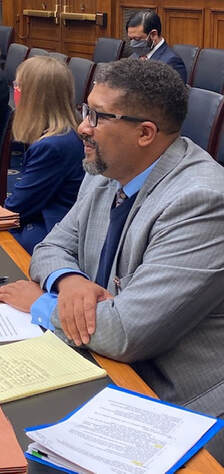 Chairman Lynch, Ranking Member Davidson, and members of the Task Force on Financial Technology, my name is Brian Tate, and I am the President and CEO of the Innovative Payments Association (IPA). It is my privilege to appear before you today to share IPA’s views on emerging Fintech cash flow products with specific emphasis on the use of earned wage access services. IPA is a non-profit trade association that serves as the leading voice of the electronic payments sector, including prepaid products, mobile wallets, and P2P payments. IPA’s mission is to encourage efficient use of electronic payments, cultivate financial inclusion, and empower consumers. As we have learned throughout the pandemic, even the best laid plans cannot always protect families from unexpected financial disruptions. The Federal Reserve’s 2018 Survey of Household Economics found that 40% of American households would struggle to come up with $400 to pay for an unexpected bill. Many consumers have few options should they face an unexpected expense between paydays, and the traditional options have proven to be expensive. The U.S. Department of Labor reports nearly two-thirds of U.S. businesses pay their workers on a bi-weekly, semi-monthly, or monthly schedule, which means that workers are, in essence, giving their employers an interest-free loan. A study by the Financial Health Network found that 38% of respondents reported timing mismatches between wage income and expenses. During the past ten years, the payment innovators have developed new services and products to help consumers meet these timing mismatches. One of the most practical and affordable options is Earned Wage Access, or EWA. Simply put, EWA programs allow consumers to access their own money prior to payday. Getting paid daily is not a new concept. Many Americans, including wait staff, taxi drivers, and bartenders, can get paid at the close of their shifts. The two former leaders of the CFPB – Directors Cordray & Kraninger – didn't agree on much, but both took concrete steps to support EWA. Director Cordray exempted employer-sponsored programs from his 2017 payday lending rule. And Director Kraninger issued an advisory opinion explaining that certain EWA programs are not credit. IPA agrees with both Cordray and Kraninger and maintains that EWA products are not loan or credit products, Therefore, they should not be subject to TILA. The Financial Health Network’s report on EWA found consumers in financial distress may consider title, payday, or pawn loans as options. With the average cost per EWA transaction ranging between $2.59 - $6.27, the report makes it clear that EWA is far less costly than those other options. EWA has grown in popularity because it is a safer, cheaper, and more efficient alternative to other short-term products on the market. EWA providers do not impact customers’ credit ratings and they do not share information to credit reporting agencies. EWA is offered with no recourse and providers have no rights against the user in the event of nonpayment, loss of employment, closed accounts, or blocked payments. These are non-recourse transactions, which means the risk of loss is on the provider. As someone who has been working since the age of 14, I can easily relate to a retail worker, single parent, or young adult facing a financial emergency and lacking easy access to short-term liquidity. At different points in my life, I have walked in the same shoes as millions of Americans who find themselves unable to pay for a utility bill, childcare, or an unexpected medical expense. Treating EWA as credit would be a mistake and would remove a valuable tool from consumers’ financial toolkit. Thank you for the opportunity to present the views of the IPA and I welcome any questions the Task Force may have. Comments are closed.
|
AuthorWrite something about yourself. No need to be fancy, just an overview. Archives
March 2024
Categories
All
|
|
© COPYRIGHT 2024 ALL RIGHTS RESERVED. | Privacy Policy
|
